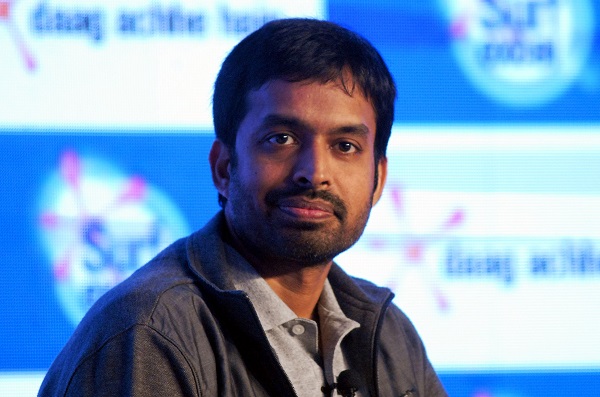- Tuesday, April 22, 2025
The former All-England champion says athletes who take up sports as a career but fail to make it to the top face a bleak future in India

By: India Weekly
INDIA’S chief badminton coach Pullela Gopichand on Wednesday called for respect for sportspersons after retirement, saying they deserve more than “saluting bureaucrats” after dedicating everything to the country during their playing days.
The 51-year-old from Hyderabad also emphasised the need for better post-career opportunities, stressing that financial stability is crucial for athletes to transition into meaningful roles after calling time on their careers.
While sport is now seen as a viable career path in India, Gopichand highlighted a pressing issue: what happens to athletes who dedicate their lives to sports but don’t reach the top?
“Many years ago, this question wouldn’t have come up because sport was not big enough. The mass of people taking up sport as a profession was not significant. But today, we have players who are completely dedicated to sport, who do not pursue education.
“My challenge is, how do I put them in meaningful roles that offer respect and financial stability, like every other profession?” Gopichand told PTI.
Gopichand said that while elite athletes who achieve national and international glory are well taken care of, the concern lies with those who fall just short.
“If you make it to the top, the government takes care of you very well. They give jobs, land, money. Fantastic, no complaints,” he acknowledged.
“Say, for example, you continue playing the sport and reach age 24 or 25, but haven’t made it to the Indian team. You’re next to Manu Bhaker, Nikhat Zareen, or Aman Sehrawat – you’re second, third, or fourth in the field. What happens to them? There are many of them. Their life is gone because they have nothing else.”
Even for those who win Olympic medals, their careers after sport are often frustratingly limited.
“You take Sakshi Malik, Aman Sehrawat, or Vijay Kumar. They have won an Olympic medal, the pinnacle of sport, but will go to his office every day and salute a junior-level IRS officer … why should I still salute you?” Gopichand questioned.
The former All England champion said that athletes must be given the opportunity to transition into meaningful roles.
“Send us to Mussoorie Institute, teach us administration. Send us to ISB, teach us business. And if we fail, that’s different. But you didn’t even try. We have given our whole life to sport, to the country, and then we get nothing,” Gopichand said.
He also stressed that society must change its perspective on athletes and their post-sport careers.
“Sportspersons need respect. We don’t want to just salute bureaucrats for 30 years. We have given our all to the sport and the country, and we deserve better opportunities.”
Gopichand acknowledged cricket is an exception where money flows easily, but for most sports, even making it to the top doesn’t guarantee a financially secure life.
He pointed to global models where universities integrate sport and education seamlessly.
“If you get 25 medals in Stanford, 17 medals in Loughborough, sport is so big in those universities that they are studying and competing. Eighty per cent of Fortune 500 companies have professional sportspersons in leadership roles,” said the Dronacharya awardee.
“Education is important for sport, and sport is important for education. This doesn’t happen by doing it separately.”
Despite initiatives like Khelo India and private sponsorships, the system remains incomplete, he said.
“You’re giving them (athletes) a turbo scholarship to swim in the sea. You turbo-charge them for 2 km, then they look back and there’s no one, and if they go ahead, there’s nothing,” Gopichand explained.
Highlighting the issue of affordability, Gopichand said: “If you are middle-class and earning, say, two lakhs a month, you would want your child to earn more. But if there’s so much uncertainty in sports, why would a parent push their child into it?
“If you are very rich, no problem. But for the others, it’s an issue.”
According to Gopichand, middle-class families need to recognise that not every young athlete will become a Sachin Tendulkar or a PV Sindhu.
“If it happens, God’s grace, is fantastic. But 99 out of 100 times, it will not happen. You have to remember that before jumping in,” he said. (PTI)